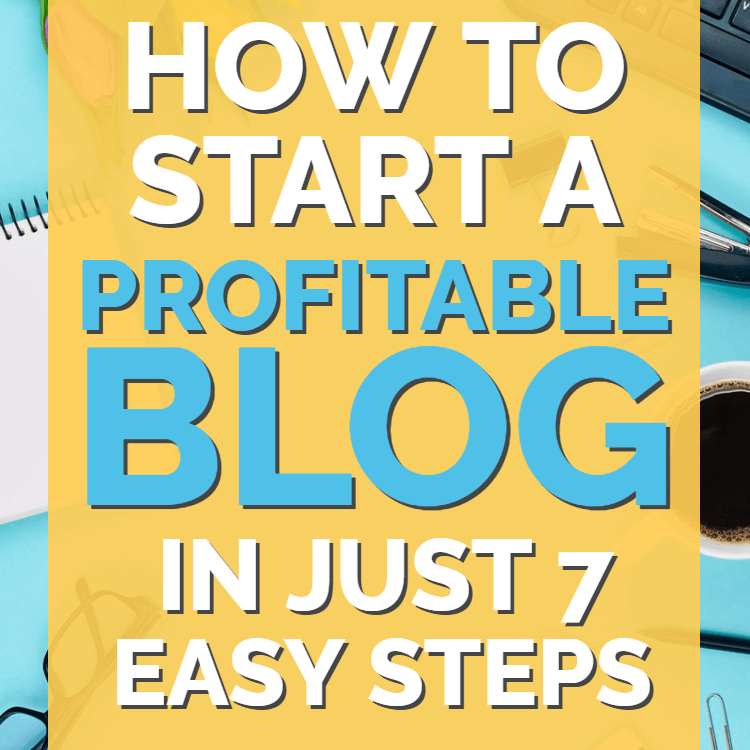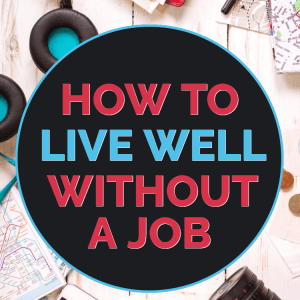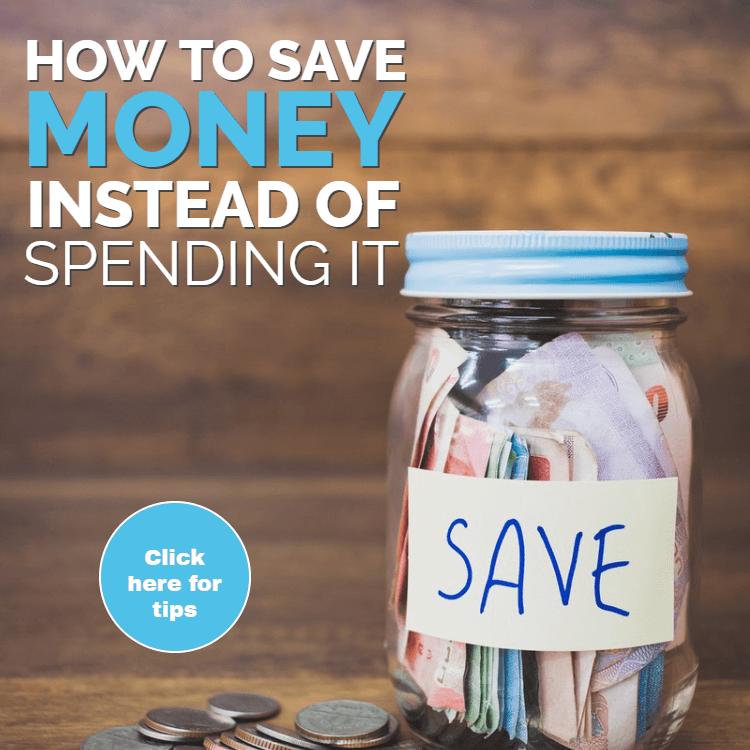Contents

How about if you won a million dollars on the lottery?
If you’re like most people, the answer is you’d loosen the purse strings a little bit.
Maybe you’d finally upgrade your crappy old car. Perhaps you’d move to a nicer neighbourhood. You certainly wouldn’t sniff at eating out from time to time or upgrading your cell phone.
It happens to us all – myself included.
My Own Experience of Lifestyle “Creep”
I’m quite a frugal person.
I take pride in saving money, living well below my means and investing for the future.
I’m probably the thriftiest person I know – and wear this as a badge of honour, constantly smirking at people buying brand new cars and taking on expenses they can’t afford. Will they ever learn?
Just recently, however, my girlfriend and I got chatting about the company we originally met at – an incredible 15 years ago (where did the time go?!).
At the time, we were being paid reasonable salaries. But these days my old income pales into insignificance. My salary has more than doubled in that time, and with it my expenses have crept up a little.
When I started to look back at how much I used to earn, and how I managed to make ends meet at the time, my (supposedly) frugal lifestyle today could probably survive a little “pruning” without any major discomfort.
Even for the most budget-conscious of us, our spending tends to go up with our income. This is what we refer to as “lifestyle creep” or “lifestyle inflation” – quite simply the more you earn, the more you spend.
But things don’t have to be this way…
The Problem with Lifestyle Inflation
Remember that $10,000 pay raise we mentioned earlier?
If you suddenly landed such a boost in salary you’d more than likely put at least a little away each month.
The more insidious problem is when these increases happen slowly, almost imperceptibly. A few hundred dollars a year. Then a few thousand. After tax, your income might only go up by $50-100. And it’s easy to use this money to just feel a little more “comfortable” financially.
$100 can get eaten up without even noticing it.
Suddenly at the end of the year you’ve spent over a thousand dollars and seemingly got nothing back in return.
If this wasn’t bad enough, the situation can keep on occurring throughout our lives.
Just as you start getting used to your extra $50 a month for a few treats, it goes up a little bit more. So you spend a tiny bit more.
Slowly, bit-by-tiny-bit your spending goes up ever so slightly until one day you have to ask yourself where all that money is going.
I know someone who runs their own company and earns a healthy salary from it. They came from a poor background, but now they live in a big house, drive round in a new 4 wheel drive and even have a jet-ski for fun (to quote them when asked about it “yeah, but what’s $20,000 these days?!”).
They’re also almost constantly broke.
They’re being eaten alive by lifestyle inflation.
Why You Should Avoid Lifestyle Inflation
If just ten years ago I earned half of what I do now, then it follows that in theory I could be saving half of my income every month. And while I still save a fair chunk, it certainly isn’t half.
The reason you should avoid lifestyle inflation is that all that extra cash you’re earning now could be put to far better use than just eating out occasionally or upgrading your TV package. That “bonus” money could be slowly growing in savings and investments, providing you with a nest egg for the future.
Here’s another way to look at the problem…
Ask yourself how much you earn each year. Then figure out how many years you’ve actually been working. Multiply the two together and you’ll have a rough idea of how much you’ve earned so far in your life.
Then compare this to your assets. Consider the equity you have in your house, how much you could sell your car for, your belongings and so on.
Unless you’re Mr Money Mustache, the difference between those two different figures is likely shockingly huge.
What happened to all the rest?
Of sure, some went on food, more on utilities, other funds on gifts for family and friends.
But just as much got washed down the plughole without a thought.
To put it in the most depressing way possible; how many years of your life have you worked in order to gain essentially nothing?
A year? Five years? Ten or more?
What a waste. All that time, effort and energy expended in exchange for a nicer brand of coffee and more channels of TV that you don’t have time to watch.
And this, my friends, is why you should avoid lifestyle inflation.
The longer you can keep your expenses low – and bank all that extra cash – the sooner you’ll be able to buy your own freedom and retire from the rat race. The less money you waste, the sooner you can finally step off the treadmill.
4 Ways To Avoid Lifestyle Inflation
I think you’ll agree with me by now that while a small amount of lifestyle inflation is almost inevitable, the smaller you can make this, the better off you’ll be in the long term.
But if lifestyle inflation happens so suddenly as to be almost unnoticeable, what can we do you control it?
Fortunately I’ve got a few tips to help you do just that…
Awareness
The first step to avoiding lifestyle inflation is simply being aware that it exists in a very real way. Simply knowing that we humans seem to be pre-programmed to naturally increase our spending in order to improve our lifestyles gives you an important tool.
The more you are aware of the possibilities, the more likely you are to spot the symptoms and beat the “disease” before it takes hold.
Assessment
How happy does money really make you? Is it a passing buzz that soon passes? How much better is your life with 100 channels of TV rather than 50, or 10? Try to assess your spending in order to decide what *really* is making you happier, and what isn’t.
One of my all-time favourite personal finance books – Your Money or Your Life – talks about measuring your spending based on the pleasure it brings you. The aim is to identify and eliminate those elements that really don’t make any major impact on your life, so that you can enjoy your real pleasures without guilt.
So grab some bank statements, or start recording your spending, and try to assess if you could downgrade or eliminate any of your monthly expenses.
Avoidance
Once you know that lifestyle inflation exists, and you’ve pruned your monthly budget, the next stage in avoiding lifestyle inflation is avoiding it in the future. Try to apply sound practices before buying anything in order to avoid impulse spending.
Put every expense – large or small – under the microscope so that your spending becomes more conscious, more controlled and – frankly – more worthwhile.
Addition
The final stage of avoiding lifestyle inflation involves focusing on your savings and investments. Rather than spending non-stop on consumer goods, which only provide a very short-term improvement in your lifestyle, instead look at adding as much as you can to pensions, savings and investments.
Take that $10,000 pay raise and plough as much as you can possibly bear into your future freedom. Remember that every dollar you put away buys you freedom in the future.
It’s a simple equation…
Spending on consumer goods = bad.
Spending on tax-advantaged pensions, savings and investments = good.
Summary
I think a degree of lifestyle inflation is natural. You could almost argue that its healthy. Who doesn’t want to build a better life as their income increases?
At the same time, its all too easy to let lifestyle creep entirely engulf your new-found wealth.
Remember the primary rule for financial success – don’t give up what you really want long term for what you want right now.
That shiny new iPhone might just be robbing you of freedom without you even realizing it…











Add comment